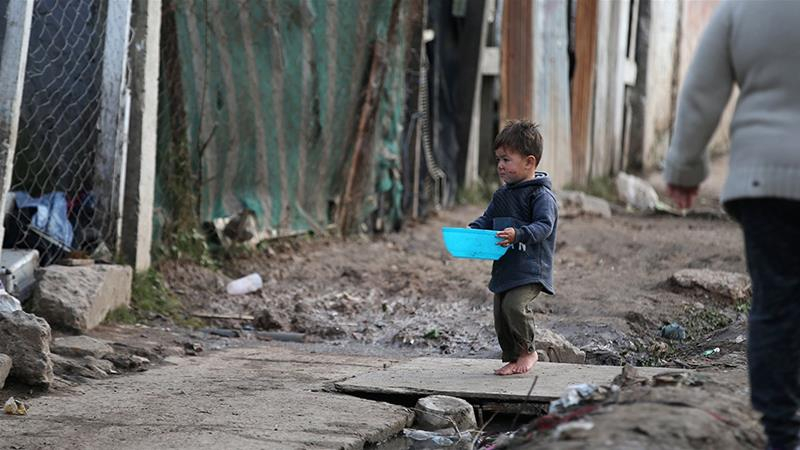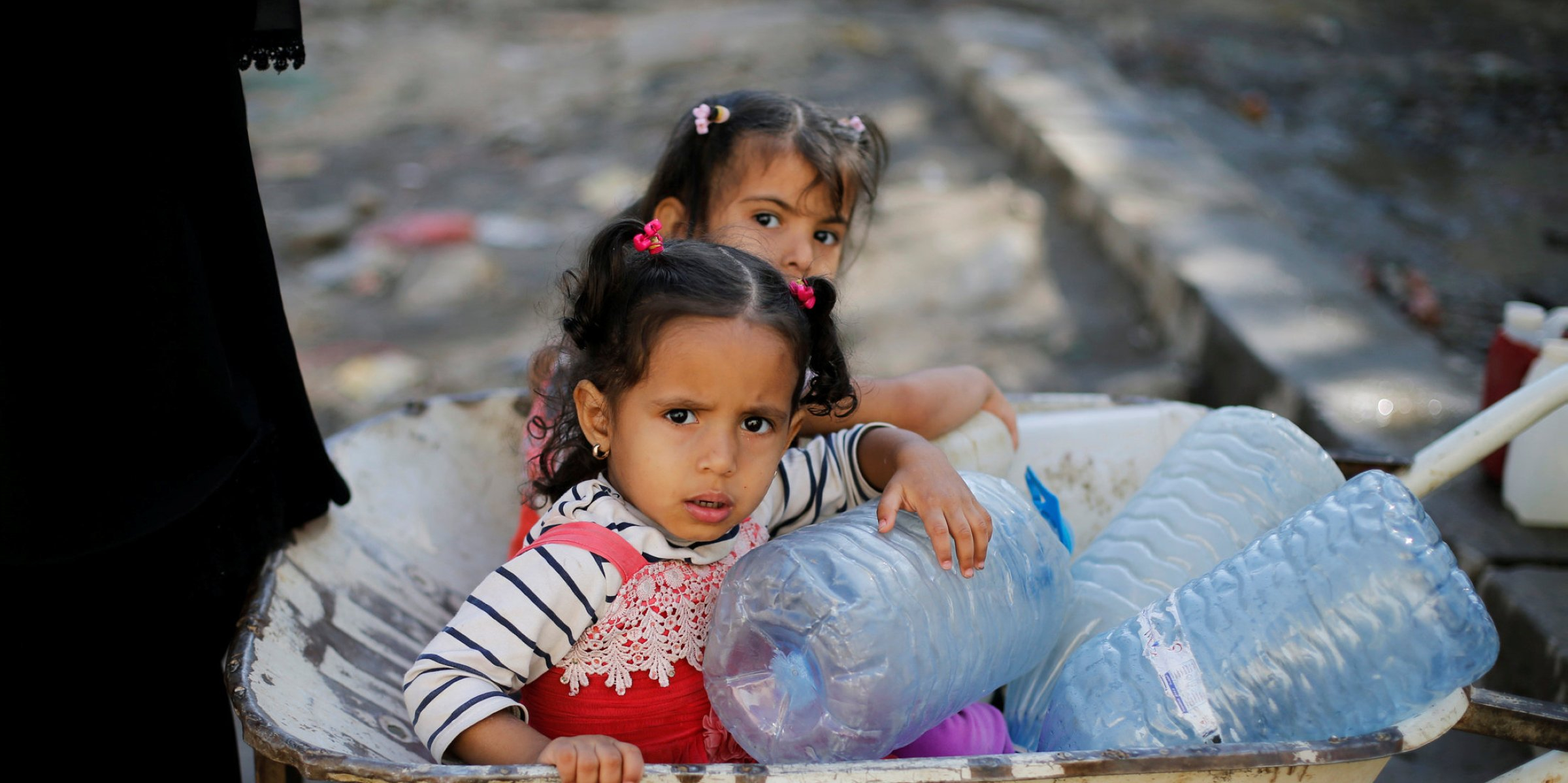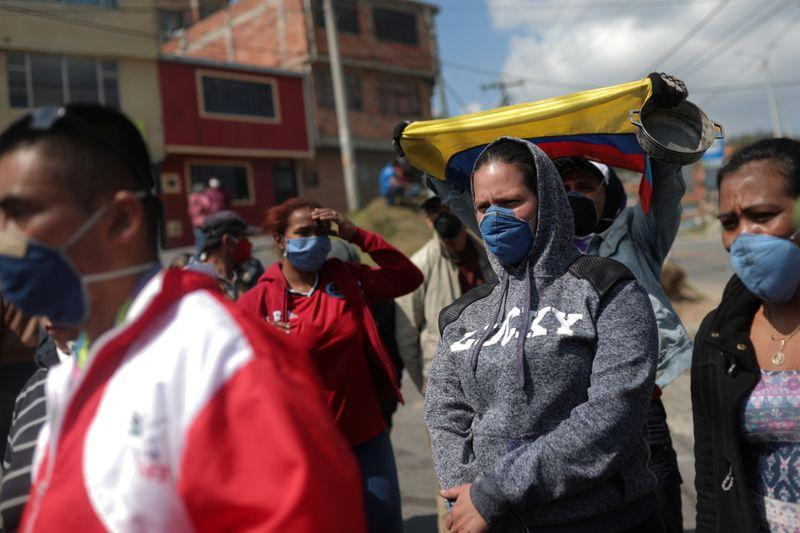
Residents in Ecuador's largest city of Guayaquil have to leave the bodies of their loved ones in the deserted streets, as funeral parlors and cemeteries are overwhelmed by the surge in deaths due to the novel coronavirus. People in masks are taking to the streets of southern Bogota, Colombia, to demand government aid because the national quarantine has emptied their pockets. The Dharavi slum in India, which houses a million residents, has become the country's epidemic epicenter.
These worrying developments are playing out while the world is gazing at the soaring death toll in New York City, which now resembles a ghost town.
As the coronavirus engulfs low- and middle-income countries, their people stand to lose the most. Inadequate healthcare systems, high population densities, a large informal economy, the slow spread of information and insufficient government finances are creating a cascade of suffering that is already beyond imagination.
In some ways, what the denizens of these countries face is reminiscent of the plight of the poor in developed countries: They have access to only the most basic healthcare facilities and resources, if at all, and can't afford to stay home.
Health is correlated with wealth
Li Yi, a visiting scholar at the National Autonomous University of Mexico, was living in Guatemala, researching on the Mayan civilization, when the coronavirus outbreak swept across Latin America. Proficient in both Spanish and Mayan, he volunteered to translate for Mayans at a public hospital. "Mayans, standing at 1.2 million in Guatemala, have the tradition of resorting to shamans for medical guidance instead of going to see a doctor when they get sick. But the coronavirus upended this centuries-old convention," he told CGTN during a phone interview.
When they learned that the country's 24th confirmed case was a shaman, they were shocked and swarmed to public hospitals. "Limited medical resources at only a handful of public hospitals are making it difficult for the country to handle an onslaught (of new patients)," Li said.
The healthcare system in Guatemala is typical of most Latin American countries. A few cost-free public hospitals are preserved for the common poor while the well-off go to bright and clean private hospitals, according to Li, who has lived in several Latin American countries over the years.

A police officer delivers boxes containing food aid to low-income people during a curfew as the coronavirus outbreak continues in Guatemala City, Guatemala, April 5, 2020. /Reuters
A police officer delivers boxes containing food aid to low-income people during a curfew as the coronavirus outbreak continues in Guatemala City, Guatemala, April 5, 2020. /Reuters
That's also the case for many countries in the Middle East and Africa. When Yemen reported the first case more than a week ago, Gu Zhenglong, a former Xinhua News Agency correspondent stationed in the region, expressed concern that there would be a cataclysm hanging over this war-addled land.
"Yemen is the most water-stressed country in the world and the poorest nation in the Arab world, so washing hands measures up to a luxury," Gu told CGTN. Only some 50 percent of the population has access to water and food, especially after the turmoil exacerbated the famine.
Gu also talked about the healthcare capacities in the Middle East after working in the region for over two decades. "Despite free healthcare (in many Middle Eastern countries), there's no good medicine or advanced equipment in public hospitals, let alone testing kits for COVID-19. Plus, it's almost impossible to mobilize doctors and nurses to treat infected patients," he noted. In most Arab countries, medical resources are concentrated in private health facilities, which are only accessible to the affluent.
When it comes to healthcare, people in these poorer countries aren't only contending with scarce healthcare resources, but also developed nations. International manufacturers of critical medical equipment such as masks are seeing their products routed to the U.S., the UK and other wealthy countries because they can afford to pay more. Meanwhile, restrictions have been imposed on these manufacturers, such as the American company 3M, which had been ordered by U.S. President Donald Trump to curb exports and focus on Americans at home. They eventually reached a deal to continue those exports to developing countries while meeting mask production requirements for Americans.
Ventilators used to provide life-saving support to critically ill patients are already in short supply in developed countries, and even more so in African and Latin American states, often having only one for millions of people. Even if more ventilators were imported, there is a shortage of medical personnel, skill and reliable power source to operate them. Going to a hospital with insufficient staff, equipment and beds are thus seen as a last resort.

Girls wait next to a charity tap as people collect drinking water in Sanna, Yemen, November 5, 2018. /Reuters
Girls wait next to a charity tap as people collect drinking water in Sanna, Yemen, November 5, 2018. /Reuters
Get infected or go hungry?
Social distancing measures imposed by poorer countries following the steps of wealthier regions are a tougher sell. Since many of the poor in these nations participate in wage-based labor or the informal economy, where jobs and enterprises aren't regulated or protected by the state, remote work using computers and video conference apps aren't an option.
A 2018 report of the International Labor Organization shows that over 90 percent of the world's informal employment existed in emerging and developing countries.
Without much savings or a social safety net, these individuals, like street vendors and taxi drivers, have to go out and earn money each day just to sustain everyday life. It is also difficult for them to follow government directives to self-isolate as they live in packed public housing or the slums of India and Brazil, some of which have population densities higher than that of New York.
This pressure is pushing governments in cash-strapped countries to call for a quick return to economic normalcy. Leaders in Latin America such as Brazilian President Jair Bolsonaro have asked that people return to work. Colombians turned to protest, chanting "we are hungry."
In terms of government aid, Guatemala has rolled out food subsidies, and Colombia is offering free water, electricity and phone services.

People wear face masks during a protest demanding government food aid for the poor, amid the coronavirus outbreak in Bogota, Colombia, April 16, 2020. /Reuters
People wear face masks during a protest demanding government food aid for the poor, amid the coronavirus outbreak in Bogota, Colombia, April 16, 2020. /Reuters
On a macro level, panic due to the pandemic has stemmed the flow of international investment into emerging economies. Many of these developing countries are responsible for global economic growth, yet are heavily reliant on foreign investments. For BRICS countries, billions of dollars in foreign investment have stopped, and some countries heavily in debt such as Argentina and Turkey are heading toward insolvency. While the central banks and governments in wealthy nations can offer greater credit and stimulus packages, impoverished states lack the welfare and financial apparatus to help their citizens weather this pandemic.
Some international organizations have anticipated how the coronavirus will have resounding consequences in nations ill-equipped to handle it. The International Monetary Fund forecasts a second "lost decade" of anemic growth in Latin America due to the virus. The World Bank has approved a program that is expected to release 160 billion U.S. dollars in the next 15 months to finance projects that would strengthen health responses and provide training and equipment to poorer regions. These grants and loans will see broad disbursement in countries from Ethiopia to Haiti. The G20, meanwhile, has agreed to a "debt standstill" that will allow the poorest countries in the world to stop making debt payments for 12 months.
More needs to be done, however, since experts expect protective medical equipment and health capacities in low- and middle- income countries to be strained and possibly overwhelmed in the coming months. As COVID-19 infections and deaths in these emerging countries continue to rise, they've suggested that richer nations provide aid packages in addition to debt relief measures. But the challenge is understanding that helping the people and the institutions in poorer countries will mean stopping the pandemic sooner, preventing re-transmission to countries that have seen a "flattening curve," or at least delaying it long enough for a vaccine to be found.